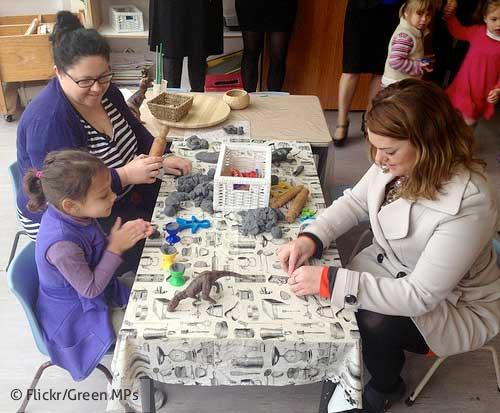We've had schemes like tax-free childcare accounts but today the government is taking new steps to support parents in the workforce by empowering parents to work sooner, support their families, and progress their careers. It is taking measures to increase the quality of childcare provision and increase the number of childminders. The government aims to reduce the gender pay gap and ensure that all parents in England have access to high-quality and affordable childcare.
Being a parent can significantly impact employment rates and hours worked, especially for mothers. There are around 435,000 parents in England who are inactive in the workforce due to their caring responsibilities for children under 3 years old and this group is mostly made up of women.
The more time spent outside the labor market or working part-time, the more of an impact it has on the gender pay gap. The UK's female inactivity rate is higher than in other top-performing OECD countries.
New steps were announced today to help ease the issues parents have when it comes to being in work, particularly childcare.
The amount of free childcare available to working families is to be increased massively. The government plans to provide over £4.1 billion by 2027-28 to fund 30 free hours per week for working parents with children aged 9 months up to 3 years old in England. This offer will close the gap between the end of parental leave and the start of the current free childcare hours offer.
Starting in April 2024, working parents of 2-year-olds will be able to access 15 hours of free childcare per week, benefiting up to 285,000 children. This will be extended to working parents of 9-month to 2-year-olds from September 2024, benefiting up to 640,000 children. By September 2025, all eligible working parents of children aged 9 months up to 3 years will be able to access 30 free hours per week.
The government is also increasing the hourly funding rate paid to providers. This will help them develop the necessary capacity to deliver the new free hours offers while raising the quality of provision.
Additionally, to increase flexibility for providers and the availability of childcare provision for parents, the government will be changing staff-to-child ratios from 1 to 4, to 1 to 5, for 2-year-olds in England, aligning with Scotland and other countries.
There will also be measures to increase the number of childminders by providing start-up grants for new childminders, including those who register with a childminder agency.
Many parents work fewer hours even when their children reach school age due to the accessibility of childcare provision. To ensure that working parents are not forced to reduce their hours due to caring responsibilities, the government is launching a new wraparound childcare pathfinder scheme. The government aims to make sure that all parents of primary-aged children in England can access care in school from 8am-6pm. To achieve this, the government will provide £289 million in start-up funding to enable schools and local authorities to test options to increase the availability of wraparound childcare in the longer term. The government plans national roll-out over academic years 2024-25 and 2025-26.
Lastly, the government will increase support for parents on Universal Credit who face high childcare costs. Currently, only around 13 percent of households eligible for the childcare element in Universal Credit claim it. To address this, the government will increase the Universal Credit childcare cost maximum amounts to £951 for 1 child and £1,630 for 2 children.
The government will also ensure that parents on Universal Credit in Great Britain who are moving into work or increasing their hours have support with childcare costs upfront when they need it rather than in arrears.


